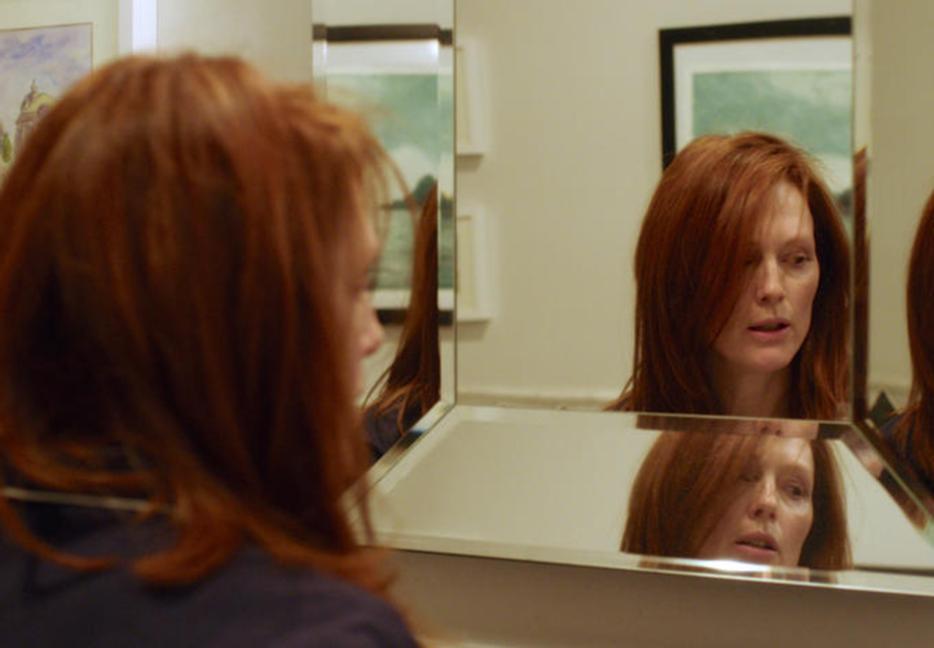In a scene midway through Andrew O’Hagan’s new book, The Illuminations, Alice is talking to her mother’s doctor. Alice’s mother, Anne, is in the early stages of dementia, and Alice talks about the difficulty of interacting with someone who is losing her grip on reality. “[Y]esterday she was talking as if it was the 1960s. Just talking about the bands and the short skirts, you know. Not recalling it but blethering to me, and to Maureen, her neighbour, as if it was all happening now.” It’s hard to watch, Alice says, in someone who used to be so intelligent. “My mother always behaved as if the truth was the biggest thing.”
It isn’t, of course, the 1960s. The Beatles don’t top the pop music charts, Twiggy isn’t in all the magazines, and hip people don’t generally do the Mashed Potato. But so what? Recently, San Francisco’s Family Caregiver Alliance featured a set of ten real-life strategies for caregiving on their website. Tip number two is “People With Dementia Do Not Need to be Grounded in Reality.” Why should an 87-year-old have to live in the 21st century if she doesn’t want to? Why should she accept that there are no monkeys in the tree outside, or that it doesn’t happen to be Christmas today?
In the novel, Anne had a career as a documentary photographer, and the idea of “the truth” as a visible quality or entity shaped her view of the world. It’s difficult for Alice to accept a version of her mother who seems so untethered to physical reality. But most of us at least pay lip service to the idea that neither truth nor reality reside in what we can see. The conventional agreements—that nighttime is for sleeping, that Tuesday comes after Monday, that toy animals (a ceramic rabbit, in Anne’s case) don’t have feelings—serve us well during our working lives. But once there’s no need to go to an office or operate heavy machinery, maybe an odder, more idiosyncratic reality is a better place to live.
In the past decade, there have been an increasing number of theatre practitioners working with Alzheimer's patients and other people experiencing memory loss. In the Netherlands, an approach called the Veder Method (developed by Amsterdam’s Theater Veder) uses costumes, props, and songs to anchor participants in previous periods of their lives. Long-term memories—the smell of school-glue, the dress you wore on the first day of kindergarten, the minnows you used to catch with a sieve in the creek—are etched more deeply into a person’s mind than short-term ones—whether you’ve eaten breakfast yet, whether you’ve recently had a visitor, where you last put down your glasses. The long-ago memories are more real to an Alzheimer’s patient than the present. Giving corporeal form to these memories, rather than insisting on the here and now, can help validate the patient’s experience.
At the same time, improvisational theatre companies like Toronto’s Imagiscape offer classes that patients and caregivers can take together that focus not on remembered scenes, but on creating a sort of malleable reality that’s rooted in the present moment. If you’ve ever taken an improv class, you know the basic concept of scene-building is to say “Yes, and—” to whatever your partner proposes. If they say, “I have to be onstage at the opera in five minutes,” you say, “We better practice how you’ll throw roses into the crowd at the end of Act Three.”
Of course, what’s hard for the children of people with dementia is accepting that in the particular alternate reality your mother or father inhabits, you may not have been born. It’s terrible to feel that the remembered buttons on your father’s shoes when he was in the first grade hold more fascination for him now than the shoes he fastened on your feet in your own childhood. It seems almost selfish to lose touch with reality—this is where the rest of us are. To say yes to an aging father’s version of reality—especially one in which you are someone else, perhaps someone he doesn’t know—is to acquiesce to the fact that he can no longer inhabit yours. It’s lonely to realize that you will soon be alone in what were once shared memories.
Speaking with her mother’s doctor, Alice says, “And now she’s so far gone it’s like all her fantasies coming home to roost. None of the lies were shot down or set to rights, and I didn’t get to talk. I didn’t get to ask about my father or get a grip on the past.” What worries Alice most is her own slippery grasp on reality—her mother, she tells the doctor, always had a greater imagination than she did, and Alice has never had the facts she needs to know her own story. “Your mother isn’t your enemy,” the doctor tells Alice. What Alice may need to do, he suggests, is try not to take it so personally.
Every week, Linda Besner reads a new book and writes on a tangentially related topic.





